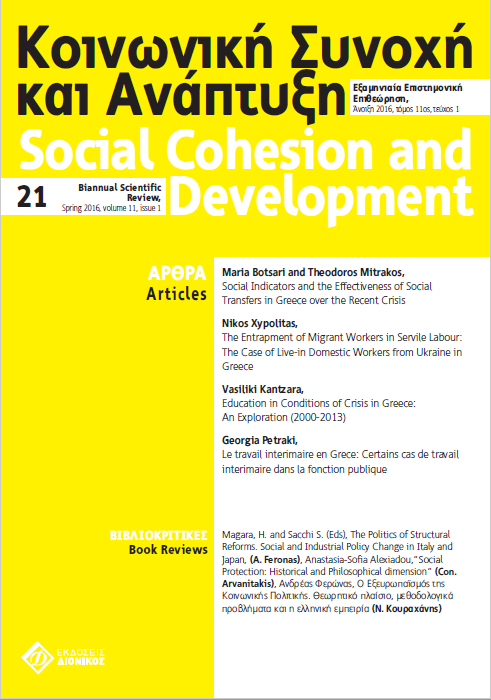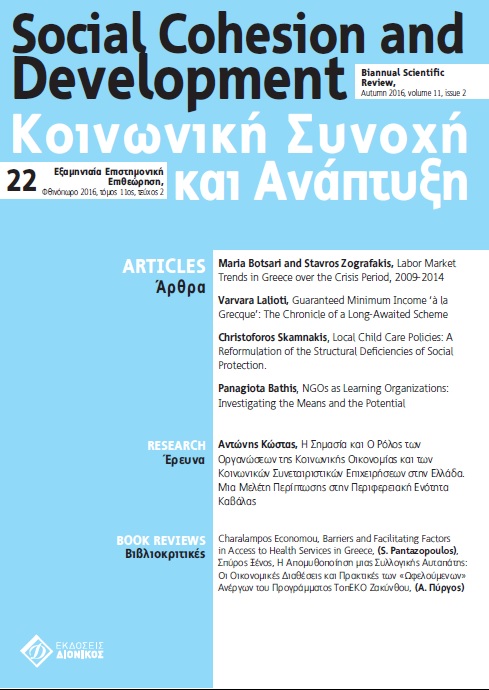Social Indicators and the Effectiveness of Social Transfers in Greece over the Recent Crisis

Abstract
In this paper we present key statistics on poverty, inequality and social exclusion in Greece and the eurozone over the crisis period 2009-2014. The data presented in this paper reveal that six years of economic recession and usterity in Greece have had a significant negative impact on rates of poverty and social exclusion, which have reached historically unprecedented and socially unacceptable high levels. Our data and analyses suggest that the Welfare State, one of the major functions of which is to redistribute income collected through taxation via social transfers, is the least effective in Greece, among all eurozone countries, in alleviating poverty and income inequality. Greece is ranked last in the Eurozone in terms of trust in government, freedom of choice, perceived levels of public sector corruption, and happiness, and third and second to last, respectively, in terms of trust in others and social support. We argue that the erosion of the social fabric and the perceived quality of the Greek climate of trust appear to be part of the story of Greece being the biggest happiness loser among 125 countries from 2005-2007 to 2012-2014.
Article Details
- How to Cite
-
Botsari, M., & Mitrakos, T. (2016). Social Indicators and the Effectiveness of Social Transfers in Greece over the Recent Crisis. Social Cohesion and Development, 11(1), 5–29. https://doi.org/10.12681/scad.10851
- Issue
- Vol. 11 No. 1 (2016)
- Section
- Articles

This work is licensed under a Creative Commons Attribution-NonCommercial-ShareAlike 4.0 International License.
Authors who publish with this journal agree to the following terms:
- Authors retain copyright and grant the journal right of first publication with the work simultaneously licensed under a Creative Commons Attribution Non-Commercial License that allows others to share the work with an acknowledgement of the work's authorship and initial publication in this journal.
- Authors are able to enter into separate, additional contractual arrangements for the non-exclusive distribution of the journal's published version of the work (e.g. post it to an institutional repository or publish it in a book), with an acknowledgement of its initial publication in this journal.
- Authors are permitted and encouraged to post their work online (preferably in institutional repositories or on their website) prior to and during the submission process, as it can lead to productive exchanges, as well as earlier and greater citation of published work (See The Effect of Open Access).



